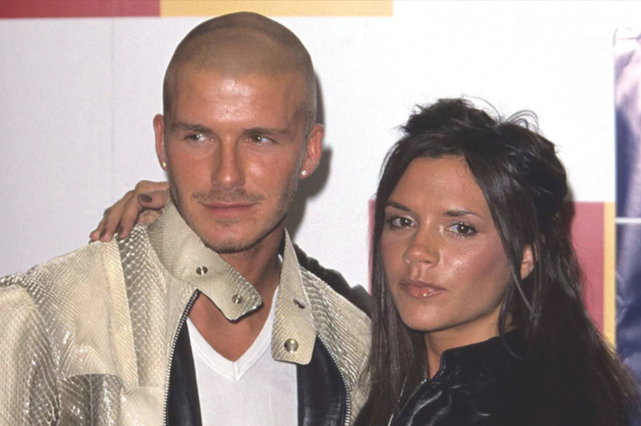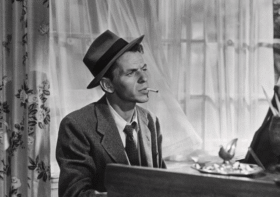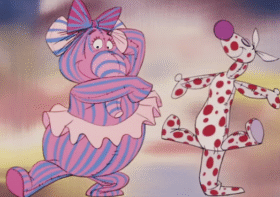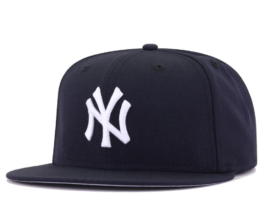How The Term “Metrosexual” Doomed A Generation Of Dressers

I entered college over 20 years ago.
When a young man enters college, we older gents like to think that his sense of self and awareness increases and, as a result, he starts wanting to dress better to attract women and generally impress upon others that he is now a grown-up.
We like to think that if we travelled back in time and did college over again that we would be the guy in the tweed jacket and loafers.
The reality is that, for most men (including me, and I suspect you too), their style tanks when they start college because the strict social structure of high school is no longer present and there’s an impulse to break free from the nervous adherence to those rules of personal presentation that seemed oh-so-important during middle and high school.
After college, men then abruptly come face-to-face with a world in which choices of personal style have tangible consequences, like possibly losing out on romantic partners or professional promotions. These men might not get the mental memo right away that “dressing well” is important, so they faff around for a number of years before getting their sartorial act together.
At that point, though, they’re playing catch-up. Dressing well never feels quite “right” to them and they struggle with “authenticity” and feeling comfortable in their clothes, even as they acknowledge that they probably should have been dressing this way all along.
What’s going on here? Why does it take so many men our age so long to get accustomed to the idea of dressing nicely? And why does it never feel quite right for many of them?
Well, the term “metrosexual” happened and doomed an entire generation of men.
Yes, I understand that the “Casual Friday” and “Fast Fashion” phenomena had been happening for some time at that point and they definitely contributed to the overall trend of men dressing down, but if I reach way back into my memory of trying to dip my toes in the waters of “dressing well”, I vividly remember “metrosexual” as a main deterrent. I might be alone in this, but I suspect I’m not.
The word “metrosexual” was coined back in the mid-nineties, but as many of you remember, didn’t really gain prominence until the early 2000s.
I’m not going to go into the origin of the word, but I am sure that most of you remember it well, however I bet that most of you haven’t thought about it in some time!
And I’m not sure what made me think of it either. I think I was trying to figure out why many men my age view dressing nicely in such negative light and how that’s so different from past generations.
Without doing any actual research on the subject, it appears that for most of the 20th century, young men viewed knowing how to dress as a sign of maturity. Knowing how to comfortably wear a coat and tie was seen as one of the many sign-posts you needed to pass on your journey towards manhood. In “those days” (don’t ask me exactly when they were), “dressing well” meant “dressing like a man”. It was something to which young men aspired and there were plenty of inspirations at which to look, from your own dad to cinema’s leading men.
Now, I am fully aware that there has always been a bit of intersection of “dressing well” (or “caring about your appearance”) and “femininity” and all the irrational fears and judgements that causes. But it doesn’t appear to be as black-and-white as it was during the “metrosexual” heyday. Back then, you had guys like Edward G. Robinson, Clark Gable, and Humphrey Bogart. No one ever thought they were less-than-men simply because they liked their tailoring.
No, it definitely seems like up until the word “metrosexual” came along, you could be a man and dress well and people didn’t automatically question your manhood.
If you were to Google the exact definition of “metrosexual” (which I won’t), it will probably say something about a guy who cares about his appearance but isn’t gay.
But do any of you remember how the term was ACTUALLY used, though? Like… by real people in everyday life? Because I sure do.
In actual usage it meant a guy who cares about his appearance but isn’t gay-wink-wink-nudge-nudge-no really-he’s-definitely-gay-I-just-use-this-term-instead-so-I-don’t-seem-homophobic-but-yeah-that-dude-is-totally-gay.
Why was that a problem?
Well, what was the single biggest insult slung around on playgrounds in the 90s? As a little boy, what was the one thing you dreaded being called?
“Gay”.
Now, of course it’s incredibly problematic that the identity of an entire population was used as an insult. And yes, it’s also problematic that I, as a little kid, was indoctrinated into believing that that word was inherently insulting. I like to think that nowadays, being associated with gayness or queerness in any form doesn’t have the stigma it did thirty years ago. But I don’t know, since I am not a kid on a playground anymore. I don’t know if the term “gay” is as widespread as it once was. I hope not. I hope that visibility and acceptance have progressed over the past three decades so that someone’s identity isn’t reflexively thought of as something demeaning.
Being called “gay” back then had a host of other meanings beyond the literal definition of the word. It meant “girly”, “feminine”, “weak”… basically if you were called “gay” it plain just meant you weren’t a man.
So, the fear every little boy had growing up (at least where I lived) was that he would do or say something that would make someone tease him for being “gay”. That’s the sauce many of us grew up marinating in.
Then came the early 2000s and many of us were trying to get our “adult legs” under us. We were graduating high school, entering and trying to figure out college, starting internships or first jobs…
Enter: “metrosexual”.
It’s a very catchy term, which is why it became so popular.
Unfortunately, by including the word “sexual” in the term, it linked “dressing well” (or just caring about your appearance) to sexuality. And, as we have established, in the popular usage of the term, it really meant the guy was gay and playing it straight.
Basically, if you dressed well, you were “metro”, which really meant “gay”. And, just like on the playgrounds of middle school, if you were gay, you weren’t a real man.
So, given the term’s popularity, you had a whole generation of men thinking that being a “well-dressed straight man” was impossible because “well-dressed” and “straight” were opposing terms. You couldn’t be both at the same time.
With this twisted perception, dressing well and manhood COULD NOT coexist.
Anyone my age who put on a pair of khaki pants or even bothered to comb their hair between 2002 and about 2008 was called “metro” by some obnoxious acquaintance.
We also thought that women wouldn’t be attracted to us if we showed we cared about our appearance because, obviously, they wanted to be with real men and real men don’t dress well.
The impulse to dress well, even if it was recognized that it would benefit personal or professional interests, was snuffed out and the desire to prove masculinity through dressing poorly took over.
After a while, the term “metrosexual” fell out of popular usage but the damage had already been done. A generation of dressers lost out on their formative years of getting the basics down. Figuring out what you like, what you’re comfortable in, and what fits you should start when you’re in your early twenties (when you’re trying to get a handle on everything else in your life). At that age, you should at least have some sense that dressing well matters and is something that should be prioritized.
But for my generation, those were years we were all kept in sartorial stasis, fearful that anything more elevated than cargo shorts meant our status as men would be questioned. There was dissonance in that we “knew” we should probably start dressing better, but suspected that dressing better was wrong in some way.
Unfortunately, none of us realized it while it was happening! None of us thought, “Hey, this new buzzy term is really stupid because it’s making me feel self-conscious about trying to look and feel my best.”
But that’s what it did. It brought back all those fears that had been dormant since grade school that none of us could really articulate. All we knew was that “dressing up” was uncomfortable and would garner snide remarks and eye-rolls and we were better off just not drawing any attention to ourselves.
For many men “metrosexual” touched a nerve that had been raw ever since childhood and it caused them to turn away from classic menswear for years, often to their own detriment.
How do we get it all back, though?
Recognizing how stupid it was to begin with is a start, for sure. Also, it’s important to recognize that it should never have been a problem in the first place! We were all adults at the time the term became popular. It should never have affected us the way it did. And we certainly shouldn’t have let it affect how we dressed.
So, hopefully, as men, we have come a long way from those timid early years where we let others, and our own fears (and possibly prejudices) sway our decisions. Perhaps “metrosexual” was our generation’s test of maturity. Can we move past silly insecurities and step into and embrace our adulthood?
Perhaps dressing well is our generation’s way of finally leaving the playground once and for all.



